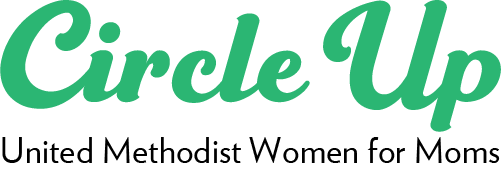Legislation for Life
The firestorm around abortion legislation isn’t dying down anytime soon. It’s one of the most polarizing conversations in American politics today, and sometimes it seems impossible to find common ground between the two sides. How can we, as women of faith, find a way forward?
One way is by taking a stand to protect those women who are choosing life for themselves and their children. We cannot cry out for the lives of the unborn without valuing the lives of the women carrying them.
This past session, the Texas legislature spent countless hours, including a 16 hour hearing with over 500 individuals testifying on a bill that would never make it out of committee, discussing the rights to life of the unborn. A multitude of legislators in both the House and Senate authored a number of bills aimed at criminalizing or limiting access to abortions, two of which were signed into law by Governor Abbott (SB 22 and HB 16, known as the “Born Alive Act”) and became effective as of September 1st, 2019.
But what about the women who are nurturing, growing, and choosing these infants? The legislature passed some incremental changes that will reduce maternal mortality such as improving portions of the Medicaid Transportation Program to allow infants to accompany their moms to appointments (HB 25 by Mary Gonzalez) and improving the Healthy Texas Women Program (SB 750 by Senator Kolkhorst).
However, the most impactful legislation wasn’t even given a hearing in the Senate after it passed through the House. HB 744 by Representative Rose would have extended Medicaid for moms from 60 days to 12 months after delivery. Notably, the extension of healthcare to a ful year postpartum was the top recommendation from the state commissioned Maternal Mortality and Morbidity Task Force’s latest report. A majority of births in this state are covered by Medicaid (53%) and a majority of maternal deaths occur between 42 days and one year after delivery (60%) which would make a law like this instrumental in determining healthier Texas moms and infants.
Even simple solutions like Senator Miles’ SB 559, which put a timetable on reporting pregnancy-related deaths to the Department of State Health Services, stalled out after passing both chambers because of an amendment filed by Representative Walle that would’ve attached a pilot program directed at combatting perinatal depression with peer specialists in community health centers. The original bill for the pilot program (HB 2618) had passed out of committee but was never scheduled for a hearing on the House floor. Even though the fiscal note was minimal, the Senate refused to even entertain the bill with the added amendment. Luckily, Senator Miles was able add some provisions pertaining to the timeliness of reporting maternal deaths to DSHS as a part of SB 750, which went on to become law as of September 1st, 2019.
It should also be noted that despite mental health being identified as a priority-item for Governor Abbott prior to the legislative session, SB 253 by Senator Zaffrini, which called for the development of a 5 year strategic plan to battle postpartum depression, was the only legislation that targeted maternal mental health that made it to a vote on the floor of either chamber. Mental health was identified as a key component of maternal deaths and morbidity (severe complications) and a recent study by Columbia University pointed out that the percentage of deaths that can be attributed to suicide from postpartum depression or psychosis are severely underreported.
So how does this all tie back in to the lives of infants and the unborn? Babies lives are directly tied to the quality of life of their moms - top causes of infant death include low birthweight and pregnancy complications which are both risk factors associated with maternal mortality. It’s been proven time and again that if mom dies, baby is far more likely to follow in her footsteps. If we want to get serious about protecting life, we have to start with the ones creating it. Expand Medicaid access for moms, women of childbearing age, and children. Join the majority of the world in requiring employers to give paid maternity leave and job security to new moms. All of these action items would reduce abortions and save the lives of both moms and babies.
